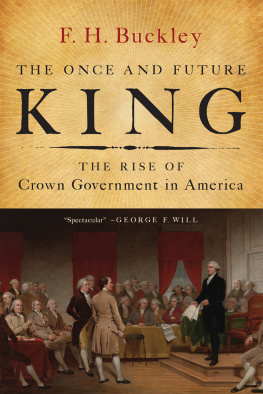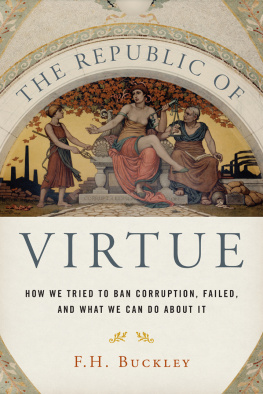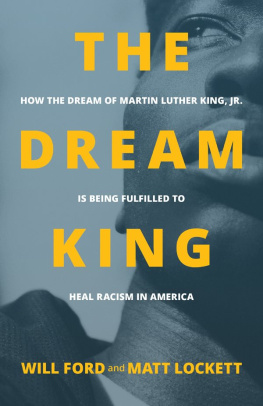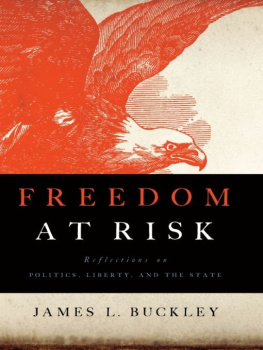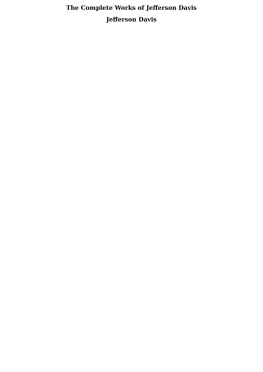Praise for The Once and Future King
His prose explodes with energy.
The Weekly Standard
One of the best non-fiction books of 2014.
Tyler Cowen, Marginal Revolution
Compellingand compellingly readable.
Reason
No U.S. political scientist has achieved what F.H. Buckley... does in this ambitious book.
Times Literary Supplement
The best recent description of [the modern presidency].... A very important contribution.
National Review
Un libro magnifico.
Lespresso
Fascinating and highly instructive.
The American Spectator
Essential reading.... Buckley is the rare scholar who can write engagingly for a popular audience.
The Washington Times
The Once and Future King is a worthy contribution to the great discourse on liberty and power which has existed and will continue to exist between the great nations on opposite sides of the Atlantic.
Standpoint (U.K.)
Just when you think theres nothing more to be said about the Constitutions framers, F.H. Buckleys provocative The Once and Future King: The Rise of Crown Government in America (Encounter, 2014) comes along.
World
Read The Once and Future King to see the true scope of the problem of executive power, not for easy answers.
Pileus
A powerfully argued indictment of the growth of executive power in Great Britain and its former colonies, the United States and Canada. Buckleys book is greatly enhanced by his expert knowledge of the constitutions and politics of these three English-speaking nations. He shows, as few scholars have, just how much of the time we live in a fog and create results we never intended.
Gordon S. Wood, Brown University, author of The Radicalism of the American Revolution
The book deals with constitutional issues at a more serious level than almost anything else I have read recently. This is a beautifully written, very interesting, and largely persuasive book.
Philip Hamburger, Columbia Law School, author of Separation of Church and State
The book is written with real brio and is a bracing read, in every way.
Sanford V. Levinson, University of Texas School of Law, author of Our Undemocratic Constitution: Where the Constitution Goes Wrong (and How We the People Can Correct It)
This is a bold and willfully provocative critique of American presidential power. Buckley takes no prisoners, questioning all the conventional pieties and received wisdom along the way. If history truly is an argument without end, this is a new entry in the debate.
Joseph J. Ellis, Mount Holyoke College, author of Founding Brothers and Revolutionary Summer
The Once and Future King is a work of virtuoso scholarshipbold, iconoclastic, and practical-minded in the spirit of the Framers themselves.
Christopher DeMuth, Distinguished Fellow, Hudson Institute

2014, 2015 by F. H. Buckley
Preface 2015 by F. H. Buckley
All rights reserved. No part of this publication may be reproduced, stored in a retrieval system, or transmitted, in any form or by any means, electronic, mechanical, photocopying, recording, or otherwise, without the prior written permission of Encounter Books, 900 Broadway, Suite 601, New York, New York, 10003.
First American edition published in 2014 by Encounter Books, an activity of Encounter for Culture and Education, Inc., a nonprofit, tax exempt corporation.
Encounter Books website address: www.encounterbooks.com
The paper used in this publication meets the minimum requirements of ANSI/NISO Z39.481992 (R 1997) (Permanence of Paper).
First paperback edition published in 2015.
THE LIBRARY OF CONGRESS HAS CATALOGED THE HARDCOVER AS FOLLOWS:
Buckley, F. H. (Francis H.), 1948
The once and future king: the rise of crown government in America/F.H. Buckley.
pages cm
Includes bibliographical references and index.
ISBN 978-1-59403-794-8 (ebook)
1. Executive power. 2. Presidents. 3. Constitutional history. 4. Comparative government. 5. United StatesPolitics and government. 6. Great BritainPolitics and government. 7. CanadaPolitics and government. I. Title.
JF251.B83 2014
321.87dc23
2013020656
For Esther and Sarah
Contents
The Once and Future King, published in April 2014, described how political power in the United States has become ever more concentrated in a kinglike presidencymore so than in a parliamentary executiveand predicted that this trend would continue. That gloomy prognosis was in the very title of the book, so I could scarcely walk away from it. I neednt have worried, however, for Obama is the gift that keeps on giving.
The book highlighted, as an especially expansive exercise of presidential power, Obamas 2012 end run around the Dream Act, a bill that would have granted permanent residency to as many as two million young undocumented aliens. The bill was defeated in Congress, but Obama, nothing daunted, then signed an executive decree that adopted many of its provisions. He couldnt grant the aliens the legal status of permanent residents, so he gave them the next best thing by announcing that the Citizenship and Immigration Service wouldnt deport them and by granting them work permits.
Immigration is a highly contentious issue, and the presidents decision to ignore Congress signaled that we had arrived in uncharted constitutional territory. Obama took it a step further in November 2014 when he announced that an additional four million aliens would be exempted from the threat of deportation. This was so breathtaking an extension of presidential power that even the Washington Post, usually a reliable presidential courtier, went out on a limb and began to talk of presidential overreach.
After a February 16, 2015 decision by Judge Andrew Hanen in Texas v. U.S., that program is now on hold. The problem wasnt the presidents decision not to enforce the immigration laws. Rather, Obama had erected a new set of rules governing who could be legalized, and crucially had purported to grant the entrants Social Security numbers, work permits and welfare benefits without complying with the notice-and-comment procedure contemplated by federal legislation. For the judge, that was a step too far, though it remains to be seen whether the injunction he granted will survive on appeal. His carefully reasoned, 123-page decision demands to be taken seriously, but its still a long shot.
THE LOGIC OF THE GAME
Some critics have called the presidents actions illegal. I have a different definition of whats legal, taken from Jeremy Benthams friend John Austin: laws are commands of a sovereign, backed by force. Obama is effectively the sovereign, and he commands all the guns.
Just who is going to stop him, after all? Executive overreach is a hot potato: a Republican Congress proposes to toss it to the courts through a lawsuit over Obamas decision not to enforce the immigration laws, and the Supreme Court can be expected to toss it back to Congress, if the future is like the recent past. Under the political question doctrine, the Court leaves the other two branches of government to sort out their turf wars. It would be especially difficult, moreover, for the Court to impeach what I call the presidents nonenforcement power, and even if it did so over the immigration waiver, there are a thousand other areas where the president might decline to enforce the laws.


